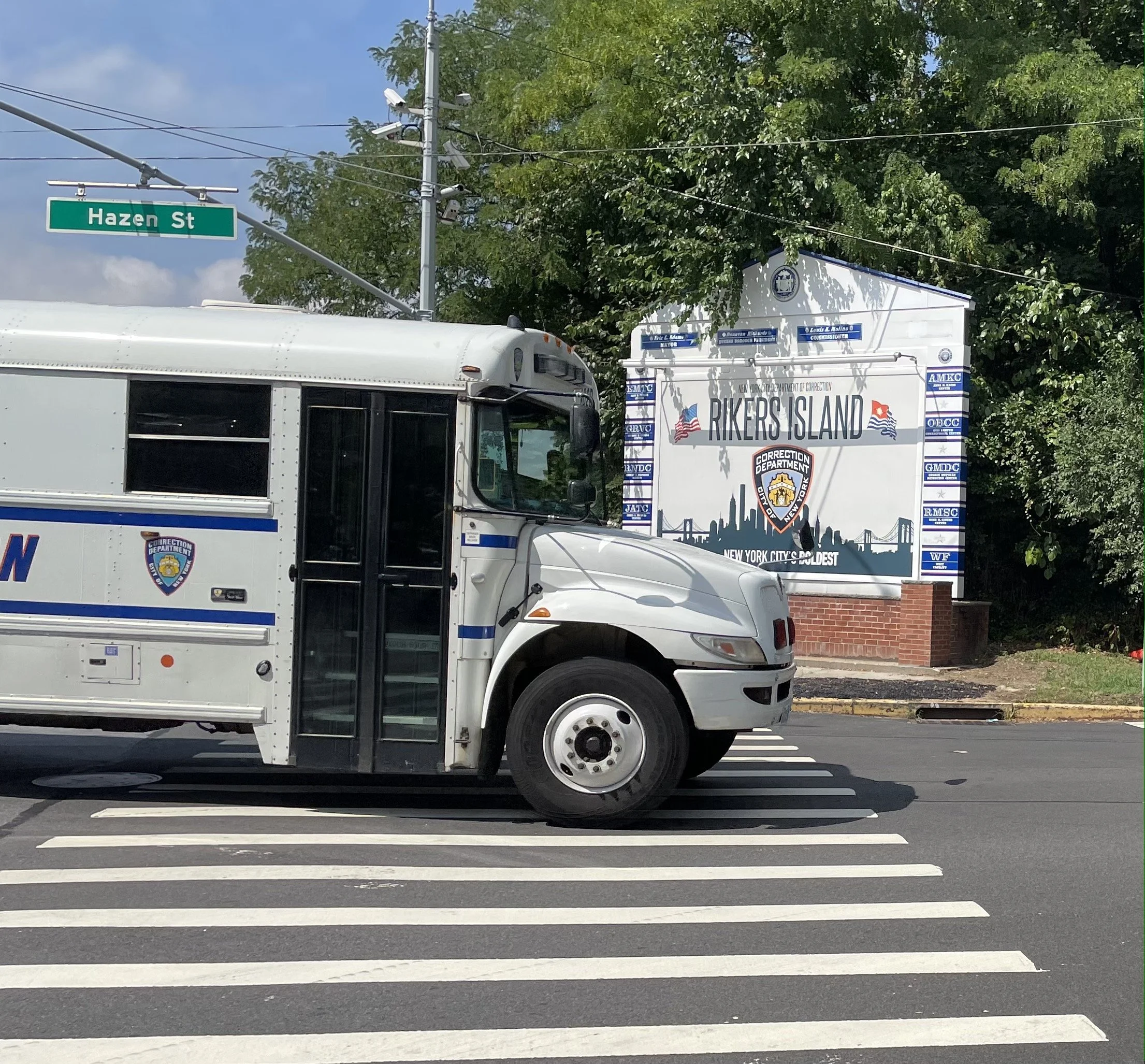Tech snafu delays vote on controversial DOC plan to digitize detainee mail
/The Board of Correction’s February meeting was pushed back a week after tech issues prevented the board from voting on a controversial plan to digitize detainee mail. Eagle photo by Jacob Kaye
By Jacob Kaye
In an ironic twist, the Board of Correction’s plan to vote on a controversial proposal from the Department of Correction to use technology to digitize detainees’ mail was thwarted by technology on Tuesday.
After struggling to broadcast the audio from the meeting in a virtual stream for over an hour, officials with the Board of Correction, which oversees the DOC and the city’s jail system, decided to push the meeting back a week rather than troubleshoot the malfunctioning tech any longer.
The tech snafu struck at what was likely to be one of the BOC’s most contentious meetings in months.
In addition to issuing a vote on the DOC’s proposed plans to digitize detainee mail – which has been chastised by elected officials and criminal justice reform advocates for months – the BOC meeting comes on the heels of news that its current executive director, Amanda Masters, plans to step down from her position in protest next month, City & State reported.
Tuesday’s meeting was also to be the first since the DOC restricted board members’ ability to view video taken from inside Rikers Island, a decision that reportedly contributed to Masters’ decision to step down. Also on the agenda for Tuesday’s postponed meeting was a vote on a plan to reduce the number of BOC meetings from nine to six per year, and an additional rule that would severely limit the number of people allowed to testify at the board’s monthly meetings.
The meeting has reportedly been postponed until Tuesday, Feb. 21.
The Board of Correction did not respond to request for comment.
This is not the first, or even the second time, there has been a delay in the vote on the DOC’s proposed mail plan.
Originally scheduled to be discussed during the board’s November meeting, a briefing on the program from the DOC and a vote on the change was delayed and pushed to the board’s next meeting, which came in January. The vote was again pushed and scheduled to take place on Tuesday.
“Board of Correction did not vote to ban love (or mail) today — [because] their digital technology failed,” New York City Comptroller Brad Lander said on Twitter following a rally he led in downtown Manhattan against the proposal on Tuesday.
“We waited in person long past scheduled start time, but they could not deliver the web broadcast,” he added. “Hope they remember that before they replace physical mail [with] digital tech.”
The vote on the controversial program will have to wait at least another week.
The mail digitization plan is aimed at reducing overdoses inside Rikers Island, where 20 people have died, including some from suspected overdoses, in the past 13 months.
According to DOC Commissioner Louis Molina, jail officials have begun to see an increase in incidents where physical pieces of mail are soaked in drugs, like fentanyl, and sent to detainees in the city’s jail, who then smoke the paper. The DOC has yet to present the board or the public with data on the frequency of drug-laced mail coming into Rikers Island.
Under the new mail plan, the DOC would contract with Securus Technologies, a private firm that is currently contracted with the corrections agency to distribute electronic tablets to detainees, to scan and deliver mail to people incarcerated in the city’s jails.
According to a recent report from Gothamist, the contract with Securus Technologies would allow correction officers to view and read the scanned mail and prevent them from being delivered to the detainees.
The contract also reportedly stipulates that phone calls made on Securus’ tablets can be transcribed and may be turned over to investigators, who would be able to search for specific words and phrases that may pose a security threat. Similarly, the company offers a service that would parse through correspondence to look for security threats within the jails, according to Gothamist.
The DOC’s proposal would also require that packages sent to detainees be purchased directly from a third party, like Amazon or Walmart. A similar policy was recently implemented in state correctional facilities and has also drawn wide rebuke from advocates and state lawmakers.
Advocates have slammed the mail digitization plan, alleging it’s an invasion of privacy and that it would further isolate detainees from their loved ones.
“The proposed variance would not contribute to greater safety for incarcerated people or for DOC staff,” Lander said in a letter sent to the DOC last month. “It would, however, further the ‘constant disruption of even the most basic services’ that the [federal] monitor identifies.”
“It would open the door to unwarranted surveillance that infringes upon the rights of those in custody,” Lander added. “And it would reward a private, for-profit contractor with a history of privacy violations, without an appropriate competitive bidding process.”
Anna Pastoressa, a member of Freedom of Agenda and the mother of an incarcerated person, spoke out against the mail and package policy during the rally in Manhattan on Tuesday.
The mother said she used to bring her son clothes and other items after he found it difficult to get laundry done on Rikers Island.
“[Bringing packages to my son] was so important,” Pastoressa said. “By blocking packages, you’re blocking laundry, you’re blocking hygiene, you’re blocking dignity.”




